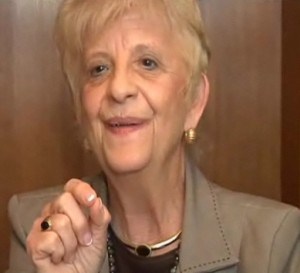 Time Warner Cable has laid the foundation to eventually begin charging broadband customers usage-based pricing, raise the modem rental fee originally introduced last fall, and continue to offer customers unlimited broadband service if they are prepared to pay a new, higher price.
Time Warner Cable has laid the foundation to eventually begin charging broadband customers usage-based pricing, raise the modem rental fee originally introduced last fall, and continue to offer customers unlimited broadband service if they are prepared to pay a new, higher price.
Time Warner Cable CEO Glenn Britt spoke at length at this week’s Bank of America/Merrill Lynch Global Telecom and Media Conference in London about how Time Warner Cable intends to price its broadband service going forward. The moderator peppered Britt with questions as investors looked on from the audience about if and when the cable company can raise prices for its broadband service or start a usage pricing plan that will generate higher revenues based on metering customer usage.

Britt
Britt repeated his earlier assertions that Time Warner Cable has no interest in capping customer usage. In fact, the company sees fatter profits from increased usage, as long as customers are willing to pay for it.
For the first time, Britt admitted customers seeking unlimited service should be ready to pay a higher cost for that option, telling the audience Time Warner would set a premium price on the unlimited tier and offer discounts to customers seeking downgrades to comparatively cheaper, usage-based pricing plans. The company hopes this new approach will limit political opposition and customer push-back.
Britt also said there is room to grow Time Warner Cable’s monthly modem rental fee ($3.95 a month), comparing it against Comcast’s current rental fee, which is $7 a month.
Britt complained that increasing usage and demand for broadband speed was requiring the company to invest more in its broadband service, something not clear on the company’s quarterly balance sheets. Real investment, except for expansion by the business/commercial services division, has been largely flat or in decline for several years. Time Warner Cable’s broadband prices have increased over the same period.
Britt also admitted that the costs to offer the service remain comparatively minor.
“In broadband there are the costs of connectivity and peering and all that sort of stuff, but they are pretty minor compared with (video) programming costs so it appears that broadband is usually profitable versus video.”
Britt also admitted the cable industry in general is increasingly dependent on broadband revenue and the profits it generates to shore up margin pressure on the industry’s formerly lucrative video service. As programming costs increase, pressure on profits increase. Yet the cable industry remains profitable, primarily because broadband earnings are making up the difference.

The meter is lurking
“I think if you look at the U.S. cable companies the EBITDA margins have been remarkably stable over a long time period,” Britt said. “The mix has [recently] changed. The video gross margin is getting squeezed, the broadband gross margin is larger and we are growing broadband so that is helping. The voice gross margin is higher than video and a little less than broadband and until recently that has been a growing part. And then we have business services which are growing rapidly and have a high gross margin.”
Additional Quotes:
Cable Modem Equipment Rental Charge: “It was received with a minimum of push-back and we’re still actually charging less than Comcast ($7/month), so I think there is room to charge more going forward. People can buy their own if they want and a small percentage of customers have chosen to do that which is fine with us.”
Usage-Based Pricing: “In order to keep up with the demand for throughput and speed which is going up every year, we are going to have to keep investing capital which we do on a regular basis, so we are going to have to figure out how to get paid for that. I think inevitably there is going to be some usage dimension, not just speed within the package, so what we have done is to put in place pretty much throughout our footprint, with a few exceptions, the idea that you can buy the standard service that [includes] unlimited usage and that costs whatever it costs, but if you want to save $5 (and that is the first thing we put in place) you can agree to a consumption limit, and we can start expanding on that.”
“I think the key to this — there has been push-back against caps in the past — I think the reason for the push-back is it was perceived in a sort of punitive, coercive fashion. The usual rhetoric is, ‘gee 20 percent of the people use 80 percent of the bandwidth or some number like that — we need to make them stop using so much.'”
“My feeling is we actually want everybody to use more, we want to invest the capital, we just want to get paid for it. So I think we should always have an unlimited offering and that should probably cost more than it costs today as the usage goes up and then people who don’t use as much should have the opportunity to save money. They don’t have to but they can, so I think that is a much more politically and consumer-acceptable way to do it than a sort of punitive thing people talk about.”


 Subscribe
Subscribe Time Warner Cable CEO Glenn Britt considers value conscious customers a nuisance, so much so the company has changed its promotions to make them less attractive to ‘big bang for the buck’-discount hunters.
Time Warner Cable CEO Glenn Britt considers value conscious customers a nuisance, so much so the company has changed its promotions to make them less attractive to ‘big bang for the buck’-discount hunters.
 All Arcadia, N.Y. town supervisor Dick Colacino wanted was for Time Warner Cable to consider using some of their profits to expand their cable system by one or two roads a year to offer service where it has earlier refused to go.
All Arcadia, N.Y. town supervisor Dick Colacino wanted was for Time Warner Cable to consider using some of their profits to expand their cable system by one or two roads a year to offer service where it has earlier refused to go. One of the chairs of the North Carolina House Finance Committee abruptly resigned his chairmanship on the House floor Wednesday,
One of the chairs of the North Carolina House Finance Committee abruptly resigned his chairmanship on the House floor Wednesday, 

 Among the model, corporate ghost-written bills ALEC maintains in its extensive database is one that restricts or bans publicly owned broadband networks, similar to what passed in North Carolina in 2011.
Among the model, corporate ghost-written bills ALEC maintains in its extensive database is one that restricts or bans publicly owned broadband networks, similar to what passed in North Carolina in 2011.
 Time Warner Cable customers in Central New York will be the first to test the cable company’s newest plan for a nationwide channel realignment that will move almost every cable channel into a new “theme-based” lineup.
Time Warner Cable customers in Central New York will be the first to test the cable company’s newest plan for a nationwide channel realignment that will move almost every cable channel into a new “theme-based” lineup. Time Warner Cable has used a theme/genre-based channel lineup for several years, but new or renamed networks have occasionally turned up in unexpected places. The increasing prevalence of HD networks has also made a mess of things, with some markets featuring HD basic cable networks nestled between premium movie channels. The channel realignment is designed to “simplify” things.
Time Warner Cable has used a theme/genre-based channel lineup for several years, but new or renamed networks have occasionally turned up in unexpected places. The increasing prevalence of HD networks has also made a mess of things, with some markets featuring HD basic cable networks nestled between premium movie channels. The channel realignment is designed to “simplify” things.